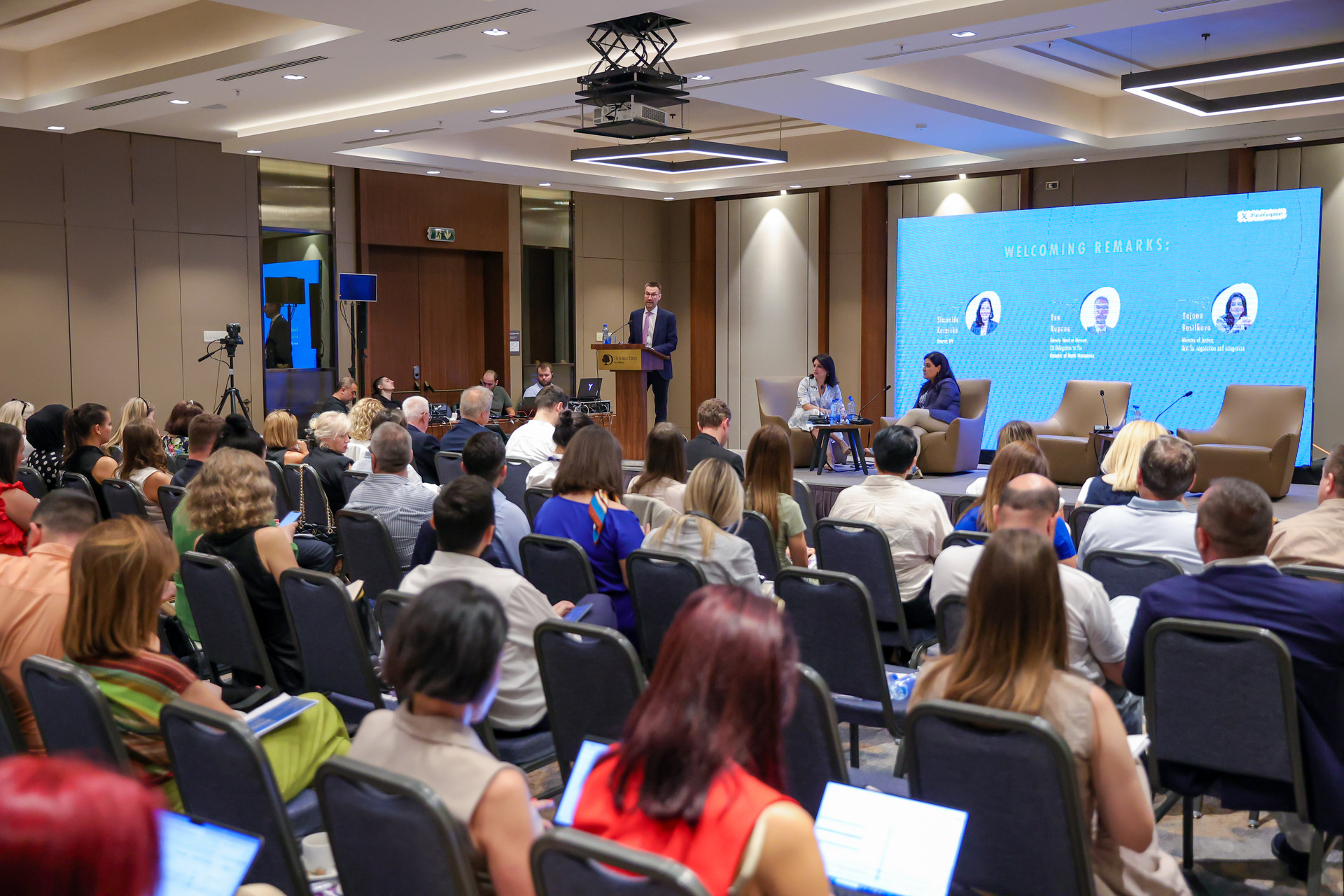To ensure continuous dialogue and communication in and between the candidate countries and the EU at different levels on the use of instruments for the Rule of Law in the context of accession to the EU, EPI organized the traditional Forum Europaeum conference, entitled “Instruments for the rule of law in the context of accession to the EU”.
The event was opened by the Deputy Head of the Mission in the EU Delegation in North Macedonia, Ben Kupnau, Bojana Bosilkova from the Ministry of Justice, and Simonida Kacarska from EPI. They highlighted the most significant developments of the past period, including the entry of four candidate countries from the Western Balkans into the EU’s Rule of Law mechanism and the introduction of the Growth Plan for the region. The Growth Plan aims to strengthen financial support for reforms through dedicated reform and growth funds. They emphasized the importance of applying the same Rule of Law standards for both EU member states and candidate countries, seeing it as the basis and goal for EU accession. The renewed momentum of EU enlargement has been described as a strategic investment in peace, with the Growth Plan offering a unique opportunity for regional integration and progress towards joining the single market. The process was noted to be merit-based and reversible, aligning with the new enlargement methodology and recent Council conclusions. Speakers also emphasized the importance of coordinated efforts and internal reforms to navigate the process successfully.
Ivan Novosel from the Human Rights House Zagreb, independent expert Biljana Kotevska, Edo Kanlic from Transparency International Bosnia and Herzegovina, and Ionut Sibian from the European Economic and Social Committee participated in the panel dedicated to the Rule of Law as a basis for EU enlargement. The discussion touched on various aspects of the EU’s rule of law report, including the need for stronger analytical elements, the feasibility of publishing it every year, the importance of precise language and comprehensive coverage, the role of civil society in EU accession negotiations and the opportunities brought with inclusion of civil society representatives from the candidate countries in the activities of the EESC.
The second panel was dedicated to the protection of the Rule of Law in the use of EU funds and the use of the conditionality mechanism in the Growth Plan for the Western Balkans. Laima Lucia Andrikiene from the European Court of Auditors, Mario Holzner from the Vienna Institute for International Economic Studies, Eulalia Rubio from the Jacques Delors Institute, and Milena Mihajlovic from the Center for European Policy in Belgrade spoke on the panel. The discussion focused on the clarity and definition of conditionality mechanisms, the transformative impact of the Growth Plan, challenges in motivating EU members after accession, and the role of civil society in ensuring transparency and accountability in the Growth Plan process.
The event was organized as part of the project “Building bridges for a common future: The rule of law in the direction of EU accession” implemented by the European Policy Institute (EPI) – Skopje and financed by the European Union.






